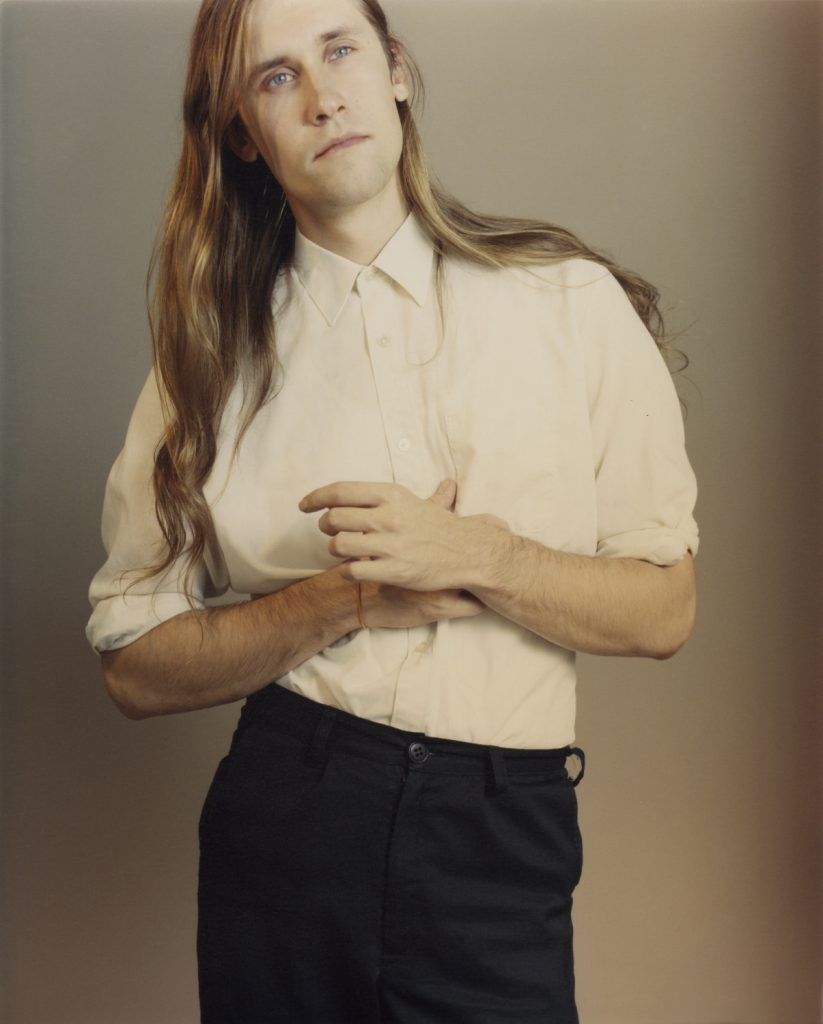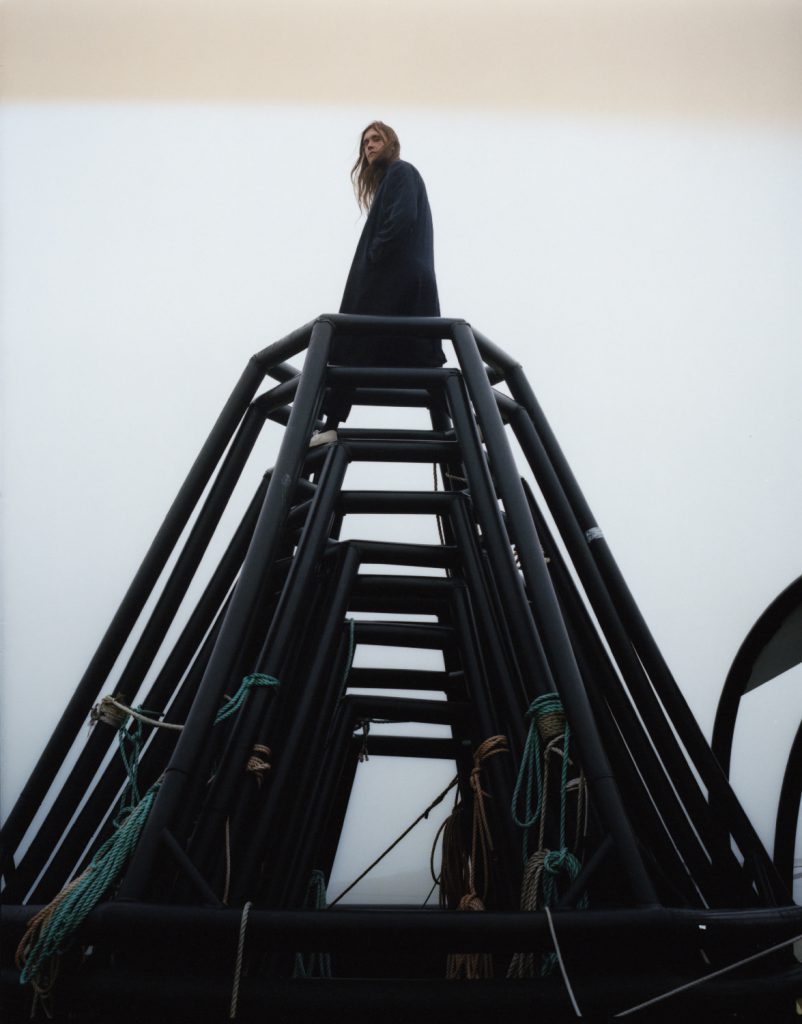Jaakko Eino Kalevi
KT: Could you recount how you first came to pursue and compose music? What are some of your most memorable inspirations & impressions, and what continues to bring you back to the highly abstracted realm in music?
JEK: I clearly remember the day I became interested in making music. It was the summer of 1995 and we were at my friend’s place listening to Aerosmith and Guns N’ Roses. After that, we went to swing at a playground nearby and decided to form a rock band in which we both would play guitar. Also, we had ideas about who would play the drums and the bass. The band was called “Masterpiece.” It’s funny that I still make music with these people.
How I started to make my solo music was basically that I found software like Fast Tracker and Fruity Loops. A little bit later, I started to use Audio Sequencers so I was able to record my playing and that’s basically what I’m still doing. I don’t program that much or loop. I have no idea why I make music.
KT: As a native Finn, what elements of Helsinki influence your work?
JEK: Jyväskylä, where I’m from, had a very active music scene. I played in many different bands and played all kinds of music and instruments. The atmosphere was very supportive. Then at some point I decided to move to Helsinki. I guess it’s a very typical development: from a village to the nearest big city, then to the capital. The capital gets boring and you move abroad. In Helsinki, I applied for all the jobs I could, but the only job that worked out was as a streetcar operator. One other job interview that I got was for a position as a driver for the Indian Embassy, but their salary was within Indian standards. I think I sometimes romanticize that streetcar job a bit, but it was very inspiring. The best and worst parts were the same basically: it was very easy. So at times it was relaxing and at times it was boring and frustrating. Both worked for the music pretty well ‘cause when it was frustrating, I made plans of what I would do when I got out of the job: recording and things.
KT: As a largely self-taught musician, do you feel that not possessing a formal knowledge of the medium facilitates greater freedom of expression?
JEK: I think some people take it too seriously and get caught up about the right and the wrong in music, which I find weird. But actually, I would like to study now and I think I would get something out of it without destroying my own sound. Institutions also seem to create their own scene sometimes, as if they are doing music for other students or something. I’m definitely not dissing studying, but something weird can go on there for sure. Studying is good!

KT: How do you compose your music?
JEK: I use my phone to write down ideas: text, parts, rhythms, melodies, and moods. I usually start with the drums and then start to add different instruments on top. Instruments themselves inspire me a lot too. I definitely get different ideas with different synths for example. And one thing I have realized is that it’s somehow easier to be playful with small toyish instruments. I think there is a lot of montage in my technique to make music and lyrics. The connection doesn’t have to be “logical.” You put different things in juxtaposition and the brain makes the connection.
KT: Listening to your music, I’d guess you were influenced by Joy Division, John Maus, New Order, Morrissey, and even Lee Scratch Perry. Am I guessing right?
JEK: Heh, I don’t think I ever mentioned Joy Division, New Order, or Morrissey anywhere. Still I can’t say they haven’t influenced me. Everything influences me. Even if you hear some music you don’t like, it might give you ideas of what to avoid. I’ve listened to a lot of dub reggae in my life, and I think many of my basslines have that influence. My music is kind of repetitive yet poppy like reggae. Also in reggae, there is this misinterpreted pop vibe going on, which I find to be interesting and inspiring.
KT: You’ve acknowledged that you’ve been inspired by Dream Theatre’s progressive metal, American hip-hop, the dreams of strangers, and even Nickelodeon’s Ren & Stimpy.
JEK: At the end of the day, where you get your inspirations is just random. I have realized that there is no point in limiting yourself. You can do whatever and you still sound like you.
KT: Performing in English, and yet expressing many of your intimate thoughts in your native Finnish, could you tell us more about your relationship with the two languages? How does working with or performing in a second language alter your expression, both relative to yourself and to your audiences?
JEK: I listen to a lot of English music so singing in English has been pretty natural for me. I like the distance of English language as well. I’m sure I have a more intimate relationship with the Finnish language and maybe I can use it more creatively, but I don’t think language makes a lot of difference in the things I am saying. One thing is that I don’t ever translate things. Another thing I just realized from the new album is that all the spoken word parts are in Finnish and all the singing parts are in English. I don’t know what that is about. I think Finnish is a good singing language too, but I like how Finnish sounds when spoken and maybe the features of spoken words come out better as a native speaker of the language.
KT: What are your intentions for your audience, when they are listening to any of your compositions? In an ideal world, how would you like your work to be digested and what enduring impressions or sensations do you hope are drawn from your work?
JEK: When I’m listening to music, I want to have the right to interpret it how I like. Even in ways that are not intended, but how can you ever know? I want my music to be listened to in the same way. Just recently I found this feature on Spotify where people can write and read lyrics of the songs, and I went to see if my lyrics were there. They were mostly wrong but it was beautiful.

KT: Finally, tell us about your forthcoming, self-titled album, and if you’ve got anything else in the works.
JEK: I‘ve been working on that album for the past three years, but there are older elements like the bassline of “Hush Down” that are from my old hip hop beats from 2004. I wanted this album to sound like it was made in one session and to sound more like an album rather than a collection of songs though. Also, I wanted to continue to develop the mood from the “Dreamzone” EP. I moved to Berlin a year ago and there is a lot of influence from there as well, but mostly from my previous visits. For example the song “Room” is about an evening at my friend Molly Nilsson’s room. And for the intro song “JEK,” I got inspiration from one dance party where they played very slow and bassy music and people looked like they were dancing in slow-mo and bending their bodies and things. I only recorded one synth part and one demo vocals in Berlin though.
The next project seems to be a new Jaakko Eino Kalevi & Long-Sam album. We changed our band name to “MAN DUO.” We have five songs ready already. After that, I would like to make a sequel to my “Töölö Labyrinth” jazz album. Actually, I would like that original to be re-issued pretty soon as well. And we have a band called PRISMA with my girlfriend which has to be recorded. Oh and I’m planning a disco album, too.